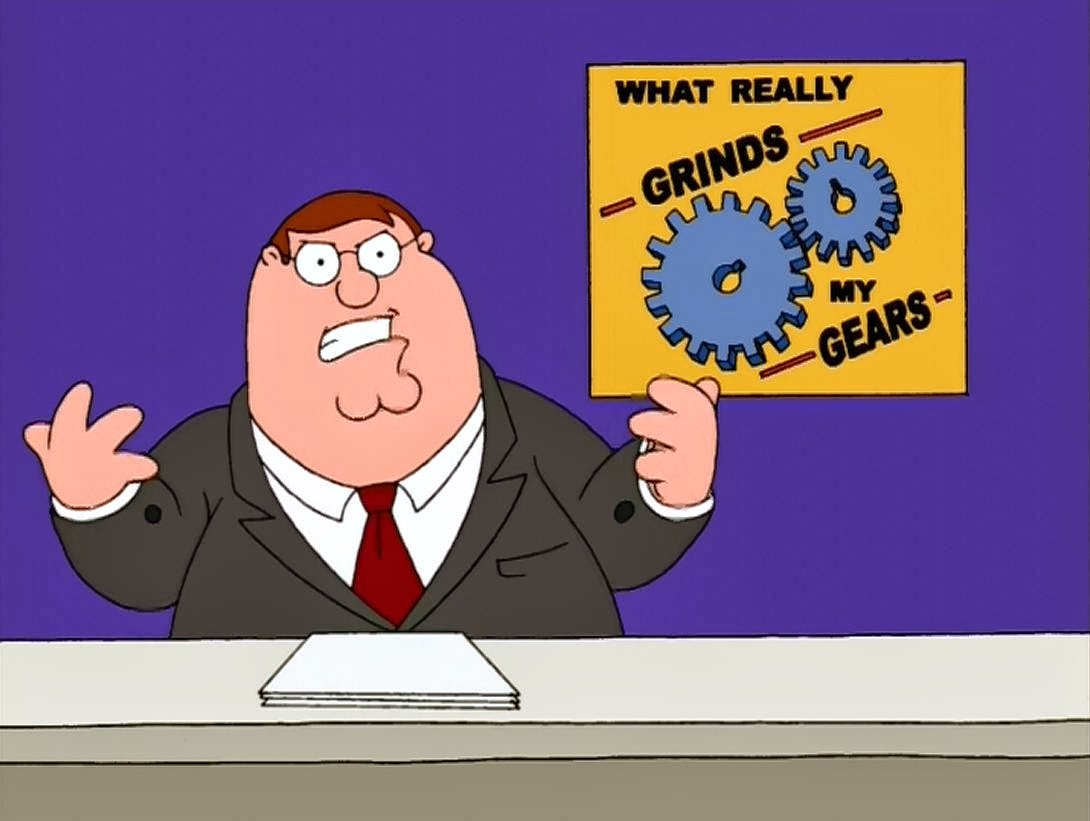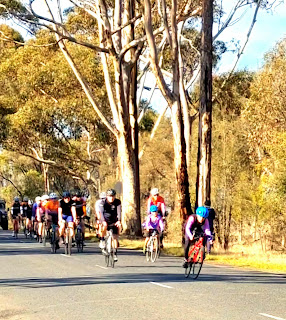What really grinds my gears...
How often
have you sat and watched the Tour de France or big cycling event and listened
to the commentators say the riders are pushing a very high tempo averaging 110
RPM and wondered what the hell are they talking about? RPM, otherwise
known as Cadence refers to revolutions per minute or how many times you turn
your cranks over per minute. Actually there's a very good reason why they
are doing this. Firstly it's sustainable over a longer period to pedal
faster, rather than harder. They will also be maintaining a lower level of lactic acid in the muscles which is known to slow
down muscle responsiveness as you near your physical limits.
If you've
ever been puffed after ten minutes on a bike then you're possibly on a steep
hill or perhaps you're in the wrong gear. I learnt early in my cycling
life not to worry about speed and concentrate on having a cadence of at least
90 RPM. Nowadays I'm the one inquiring about cadence, making the suggestion to drop down to a lower chain ring or easier gear and imploring other
cyclists to favour spin over grind. If you don't have a gadget that tells
you your cadence, ask yourself is this a comfortable pace you could sustain all
day or as one of my training partners says find a comfortable gear to ride in
and then change into the next easiest gear.
Learning
new ways is always difficult, so don't try and graduate from 75 to 100 RPM
overnight. It's effectively a re-programming exercise for your body and
your brain. One way to approach this exercise is to find a relatively
flat course, wind trainer or spin bike, put your bike in the easiest gear and
peddle as fast as you can. Pushing down and pulling up with each stroke of the
pedal, rather than being all about downward force on the pedals. If the
pushing and pulling concept is too difficult to grasp, then think about pulling
big circles with your feet clipped into your pedals. You should be able
to get to 120 RPM or higher. Try and sustain that for a minute, take a
minute off and repeat and gradually add minutes to the effort.
Every
time I see someone out for a training ride pushing a ridiculously hard gear
with a very low cadence rate I want to get into their ear and give them a big
selfrighteouscyclist reminder about the potential damage they might be doing to
themselves. Whilst out on a regular Sunday spin with another mate I
encountered one such solo cyclist. Pushing his highest gear he would
have barely made 60 RPM, but he was flying along at least 5km/h faster than our
pace. I sat wheel to wheel with him for a while but he wasn't much for
conversation and then dropped into his draft realising that wasn't my pace and
let him go thinking we'll probably pick him up later. Sure enough, no
more than 5km down the road we passed him. Maybe that was part of his
training plan to go out and grind himself into the ground, but not one I'd
subscribe to 35kms from home.
Are you a grinder
or a spinner? A lot of cyclists will tell
you this is an easy way to spot a triathlete from a cyclist.
Perhaps they're right, but it’s
just as likely to be those new to cycling. I'm sure I spent the first few
years of my triathlon career pushing the big gears only to die on the run.
It wasn't until I found the fine line between spin and grind that I was
successfully able to produce decent run times off the bike.
Of course
when the going gets tough and your cadence drops off don't be afraid to change
down gears and keep your cadence steady on 90 or higher. Once you run out of gears stay
seated as long as you can and only then stand to push your pedals for about 10
revs and resume your seat, because now you're only left with the downward force
of your pedal stroke.
This is
really important for kids and adolescents whether they're riding recreationally
or competitively. The message should be to make it a spin not a grind.
Just as young people are discouraged from weight training, the repetitive
use of use of hard gears can cause damage to young developing muscles.
Therefore in the cycling word junior riders are restricted to Gear Limitations in all
forms of competitive cycling. Actually the first thing I did when I put
together a racing bike for my 12 year old son was to set the cadence meter and
teach him how to spin and explain the importance of it. Sit, spin and enjoy.
Caffeine
speak has been notably absent from recent blogs, so I'm going to segue over to
the exception and when it's ok to grind. Presenting the self proclaimed Coolest Grinder on the Street, which in 100 turns will
grind 14 grams of coffee beans. While you're thinking about that, what other ideas and techniques have you found that have taken you from grinder to spinner?





Comments
Post a Comment